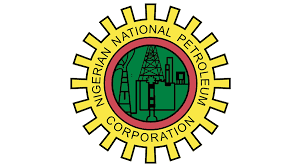An upsurge in fuel queues was experienced across the country in recent weeks after the shutdown of some independent petrol stations that claim to no longer be making a reasonable profit by selling petrol at the government-set price of N165 per litre. This is a major issue for businesses and households in Nigeria who have been grappling with the skyrocketing price of diesel since the beginning of the year. The price of diesel has hovered around N350 per litre since January of this year, but today it goes for as high as N850 per litre in some parts of the country.
According to a report by the Paris-based International Energy Association (IEA), nearly half of all Africans without electricity live in Nigeria, the Democratic Republic of Congo, Ethiopia, Tanzania, and Uganda. The Energy Progress Report 2022, published by the IEA alongside the United Nations Statistics Division, the International Renewable Energy Agency (IRENA), the World Bank, and the World Health Organization (WHO), estimates that about 92 million Nigerians lack access to electricity from the national grid.
Like crude oil, Nigeria has abundant renewable energy potential. Renewable energy, by definition, is energy that is derived from resources that can be replenished naturally on a human timescale. Five major sources of renewable energy exist solar, hydro, wind, biomass, and geothermal.
Solar energy is the most commonly accessible source of renewable energy in the Nigerian market due to the significant progress in local competence in solar photovoltaic technology. Nigeria has an estimated 427,000 MW of solar energy-producing capacity. This is a big and potentially game-changing development in a nation where there is an energy supply imbalance of at least 180,000 MW, according to the Association of Nigerian Electricity Distributors.
For businesses and households, switching to solar energy systems can be an efficient cost-saving measure. Although buying a solar energy system may initially cost more than buying a diesel or fuel-powered generator, many solar energy firms offer flexible payment options to help their customers manage the initial investment. Additionally, solar power systems are more durable and easier to maintain in the long run, and they do not require constant fueling as the sunlight is a free gift from nature.
Other tactics that can be used to aid solar energy enterprises in achieving economies of scale, lowering the cost of their products, and improving their competitiveness include collaborations, patronage, demand aggregation, advocacy, and capacity building. While solar energy appears to be the focus in Nigeria, we must not ignore other sources of renewable energy, such as wind farms, off-grid hydroelectric power, and biofuels.
Aside from its favorable effects on the environment, corporate profits, and household disposable income, switching to renewable energy sources can also have a positive macroeconomic monetary impact. According to estimates, the importation of petroleum products like gasoline (petrol) and diesel accounts for between 30% and 40% of the nation’s limited foreign exchange. Adopting renewable energy solutions can curb the demand for and importation of these petroleum products and go a long way in stabilizing the country’s exchange rate.

